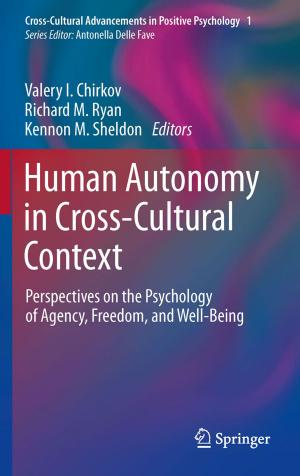Handbook of Sustainable Travel
Nonfiction, Social & Cultural Studies, Political Science, Politics, City Planning & Urban Development, Science & Nature, Science, Biological Sciences, Environmental Science, Nature| Author: | ISBN: | 9789400770348 | |
| Publisher: | Springer Netherlands | Publication: | October 13, 2013 |
| Imprint: | Springer | Language: | English |
| Author: | |
| ISBN: | 9789400770348 |
| Publisher: | Springer Netherlands |
| Publication: | October 13, 2013 |
| Imprint: | Springer |
| Language: | English |
This volume gathers distinguished researchers on travel behavior from a variety of disciplines, to offer state-of-the-art research and analysis encompassing environmental, traffic and transport psychology; transport planning and engineering; transport geography; transport economics; consumer services research; environmental sociology and well-being research. The underlying dilemma is that neither contemporary transportation technology nor contemporary travel behaviors are sustainable. The path toward sustainability is complex, because the consequences of changing technology and attempts to change travel preferences can be extreme both in economic and in social terms. The Handbook of Sustainable Travel discusses transportation systems from environmental, social and economic perspectives, to provide insights into the underlying mechanisms, and to envisage potential strategies towards more sustainable travel. Part I offers an introduction to the subject, with chapters review historical and future trends in travel, the role of travel for a good society, and the satisfaction of travelers with various features of travel options. Part II proceeds from the fact that the car is the backbone of today’s transportation system, and that a break with automobiles is likely to be necessary in the future. Contributors review the development of private car use, explore economic and psychological reasons why the car has become the primary mode of transport and discuss how this can be changed in the future. Part III addresses the social sustainability of travel, providing insights into the social costs and benefits of leisure, business and health travel, and taking into account the social costs or benefits of measures whose goals are primarily environmental. The authors provide the necessary background to judge whether proposed transport policies are also sustainable from a social perspective. Part IV highlights future alternatives to physical travel and surveys ecologically sustainable travel modes such as public transport and non-motorized modes of transportation.
This volume gathers distinguished researchers on travel behavior from a variety of disciplines, to offer state-of-the-art research and analysis encompassing environmental, traffic and transport psychology; transport planning and engineering; transport geography; transport economics; consumer services research; environmental sociology and well-being research. The underlying dilemma is that neither contemporary transportation technology nor contemporary travel behaviors are sustainable. The path toward sustainability is complex, because the consequences of changing technology and attempts to change travel preferences can be extreme both in economic and in social terms. The Handbook of Sustainable Travel discusses transportation systems from environmental, social and economic perspectives, to provide insights into the underlying mechanisms, and to envisage potential strategies towards more sustainable travel. Part I offers an introduction to the subject, with chapters review historical and future trends in travel, the role of travel for a good society, and the satisfaction of travelers with various features of travel options. Part II proceeds from the fact that the car is the backbone of today’s transportation system, and that a break with automobiles is likely to be necessary in the future. Contributors review the development of private car use, explore economic and psychological reasons why the car has become the primary mode of transport and discuss how this can be changed in the future. Part III addresses the social sustainability of travel, providing insights into the social costs and benefits of leisure, business and health travel, and taking into account the social costs or benefits of measures whose goals are primarily environmental. The authors provide the necessary background to judge whether proposed transport policies are also sustainable from a social perspective. Part IV highlights future alternatives to physical travel and surveys ecologically sustainable travel modes such as public transport and non-motorized modes of transportation.















